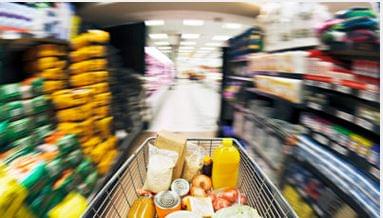Optimistic Americans
While uncertainty remains high among U.S. consumers, their outlook is generally more favorable than their European counterparts. So finds a recent study by marketing consultancy Simon-Kucher & Partners. The COVID-19 Consumer Outlook Study surveyed more than 12,000 consumers across the U.S., the U.K., Germany, and China through three pulse surveys in June

On the Insights pages published by Shop! HQ (mother organisation of POPAI Hungary) the detailed analyses of the research is available.
Europe is the gloomiest
In the early weeks of the study, 60% of U.S. consumers revealed that they felt uncertain about their financial outlook; four weeks later, that number remained steady at 61%. Despite still being in the midst of the virus outbreak, U.S. consumers have a more optimistic outlook about the future than do respondents from other countries – more than a quarter of Americans expressed an optimistic outlook, as compared to 15% in the U.K. and 18% in Germany, where the spread of the virus is much more contained. However, Chinese consumers expressed the greatest level of optimism, with 42% expressing a favorable outlook.

Less spending lower frequency

Of course, willingness to spend on nonessentials differs drastically between Americans who believe the pandemic will be over within three months and those who predict the pandemic will last a year or longer. In fact, the latter group is cutting back on spending at restaurants and bars by 41%, as compared to only 17% by those who think it will be over in three months.
“Consumers are not so much cutting categories or nonessential purchases entirely, but more shifting the amount they are willing to spend or the frequency in which they make those purchases,” says Ricardo Rubi, global head of consumer goods and retail at Simon-Kucher. “Brands need to make sure they have the right assortment and prices to capture this new behavior— having products that cover different price points and better stock consumers up since they are not buying as often.”
Unemployment is harmful for health
While the health impacts of COVID-19 have been catastrophic, the wellbeing of U.S. consumers has also been devastated by skyrocketing unemployment numbers. Although it is not surprising that in a post-COVID world, the unemployed expect to cut back on spending more than the employed in a number of areas such as at-home entertainment (-38% vs. -21%) and leisure travel (-67% vs. -52%), it is worrisome that one of the most impacted areas is medical expenses. The unemployed are cutting healthcare-related spending by 40%, as compared to only 16% by those who are employed.
“Unfortunately, health and economy are directly tied right now, with potential longer-term impacts after the crisis is over,” Rubi says. “People feeling that they need to cut medical expenses due to their financial situation is one problematic side effect, particularly here in the U.S.”
Grocery, cleaning and e-commerce are winning

Cleaning supplies and grocery are likely to see ongoing boosts – Americans spent 25% and 12% more in these categories, respectively, during the pandemic, but anticipate they will continue to spend 7% and 3% more than they spent precoronavirus even once things are back to “normal.”
Of course, online shopping is also experiencing a surge. The percentage of U.S. respondents doing more online shopping (54%) is fairly similar to those in the U.K. (59%) and China (51%), but significantly higher than in Germany (38%).
Brands and retailers will need to set their strategy and growth expectations of the categories. Reviewing their assortment, reassessing their promotional calendar, exploring new channels, and optimizing their pricing strategy will reflect these FMCG trends.
Related news
Sharp price competition and challenges in the Hungarian food industry
Serious price competition has developed on the Hungarian food market,…
Read more >After the plunge in April, the GKI economic sentiment index climbed a little in May
Although the GKI economic sentiment index rose in May compared…
Read more >We told you so – economic perspectives in 2023
When I had a conversation with executives last autumn, many…
Read more >Related news
Most major grocery chains will keep their stores open until noon on December 24th
Most of the large grocery chains will keep their stores…
Read more >Recognition of Consumer Protection Excellence: Honoring the Best of 2024
This year’s outstanding consumer protection officers and special award recipients…
Read more >The Joy of Giving! – SPAR stores collect non-perishable food for people in need
The Hungarian Maltese Charity Service and SPAR Hungary have launched…
Read more >








